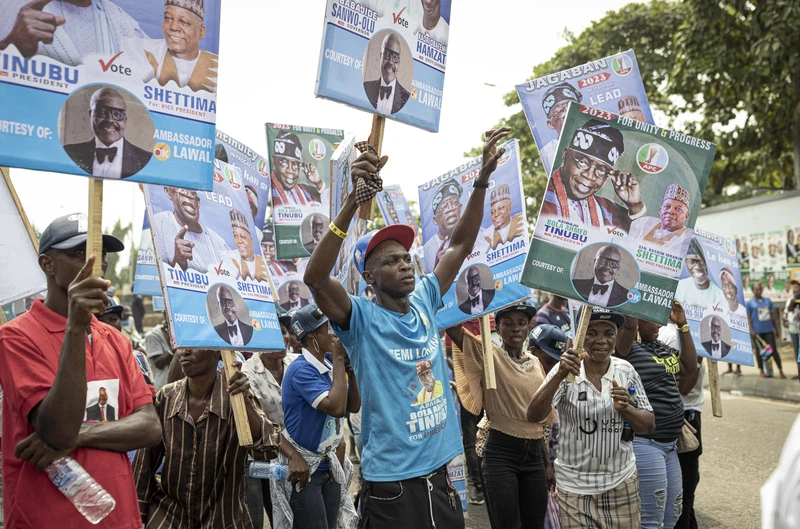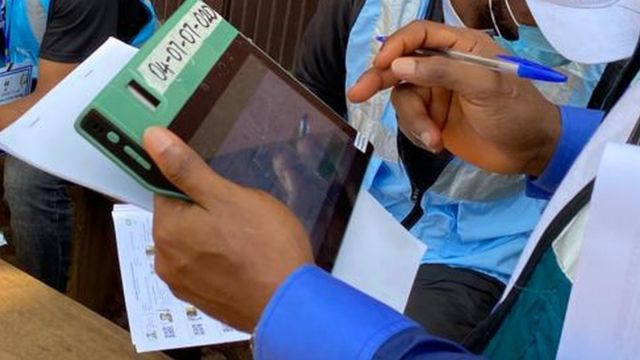Nigeria’s February 28 Elections are drawing significant national and international attention.
 AFP/Courtesy The South Africa
AFP/Courtesy The South Africa It is believed that young people, most of them under 35 years of age, will help decides the 2023 Nigerian elections.
Editor’s Notes: Nigerians go to the polls on Saturday, February 25 to elect the country’s next president. The top three contenders in the election are Peter Obi, representing the Labour Party, former vice-president Atiku Abubakar who is representing the People’s Democratic Party(PDP), and Bola Tinubu, representing the All Progressive Congress(APC) party. Current President, Muhammadu Buhari is stepping down after serving two terms in office.
Deciding Nigeria’s Future
According to the World Bank, Nigeria has a population of over 200 million. This represents the most populated African country. It is the continent’s largest democracy, as well as Africa’s largest economy. Nigeria is projected to have 380 million people by 2050, with the majority of the population being young people below 35 years old. Nigeria’s February 28 Elections will play a crucial part in shaping this future.
Nigerian’s young people are facing challenges such as the lack of socio-economic opportunities. They are also faced with threats posed by armed conflict, as well as gender misrepresentation. In the upcoming February 28 elections, they have an opportunity to address these issues through the leaders they select. Furthermore, Nigeria’s February 28 Elections are seen as a turning point for youth empowerment.
The Adoption of Elections Technology in Africa
The election is unique. Nigeria joins other African countries — Kenya, Mali, and Somalia — in the use of electronic voting systems. Compared to previous elections, Nigerian voters will use the Bimodal Voter Accreditation System (BVAS) in an effort to stop election malpractices such as rigging. The use of the BVAS will aid in preventing election fraud. It is a positive step ahead in the application of technology for the country. Notably, Nigeria’s February 28 Elections will showcase the effectiveness of these new systems.
To help prevent election fraud, we’re the system uses both fingerprints and facial recognition for voter identification. Voter results will be uploaded to the Independent National Electoral Commission (INEC) portal for all to see. In summary, the integrity of Nigeria’s February 28 Elections will be closely watched by both citizens and the international community.
Elections Help Advance Democracy
Elections are an important aspect of Nigeria’s democratic trajectory. If mismanaged, it could lead to violence. Previously there have been reports and accusations of rigging by politicians.
The February 25 vote will aid in deciding the future of Nigeria. It is a significant step in the display of Africa’s democracy. If no candidate gets the largest number of votes cast in at least 24 of Nigeria’s 36 states, the election will result in a run-off.

